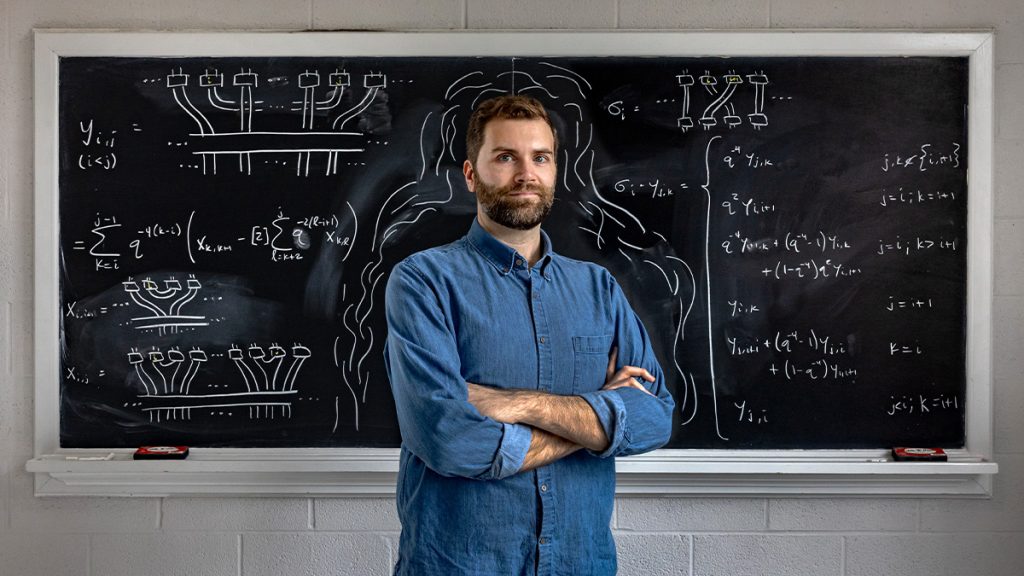Former lawyer Andrew Adair came to Carolina for a doctorate in mathematics, his first passion.

Sixth-year doctoral student Andrew Adair will graduate from Carolina next month with a degree in mathematics.
It’s a journey that began when Adair, then a New York City corporate lawyer, asked himself: Do I want to leave a successful career in law for something I’m more passionate about?
The answer was yes, Adair said, but “it just seemed like you were kind of going into the unknown and you didn’t really have a clear path set up for yourself.”
Now Adair’s path leads to the National Security Agency, the intelligence agency of the Department of Defense. After graduation and a full security clearance, he will go to work at Fort Meade, Maryland.
Adair, who considers himself a generalist, likes that his NSA job title will literally be mathematician.
“It feels like a natural fit for having this degree and the skillset that I have from math research to go do this. I feel like it’s nearly a best-case scenario,” said Adair.
Leaving the law
Before Adair arrived at Carolina, he was a corporate litigator at a large law firm. Although he majored in math at the University of Michigan, he felt law school was a more straightforward career move.
But when the law failed to hold his interest, he decided to follow his passion for mathematics, even if it meant leaving a secure job in a lucrative field.
“I think most of my colleagues were surprised. It’s very unusual,” Adair said. When most people leave a big law firm, “usually it’s to go be a lawyer somewhere else.”
His parents supported him but were concerned he might be making a rash decision, Adair said. But after taking a year of classes at the State University of New York at Buffalo to refresh his mathematics knowledge, he gained admission to a doctoral program at Carolina, and his parents worried less.
“They were like, “OK, you’ve worked it out,’” he said.
His career path wasn’t the only thing Adair worked out in Chapel Hill. He also met his wife, a fellow graduate student, at Carolina.
Tied up with knots
Adair’s research at Carolina focused on knot theory. No, he’s not trying to untie your shoes. He studies mathematical knots — closed curves in three dimensions — which have applications in sciences like physics, chemistry and biology. For example, some scholars are using knot theory to study the strands of DNA.
Knot theory is a field within the branch of mathematics known as topology, the study of malleable shapes.
When discussing knot theory, “it’s hard to even talk to people who are also Ph.D.s,” Adair said. “Trying to explain to someone why that’s interesting is a little bit harder.”
Secretive numbers
Adair reasons that some of the concepts of knot theory could pop up if he’s tasked with cybersecurity matters at the NSA. But he also taught a wide range of mathematics courses at Carolina, and he thinks his skills as a generalist will serve him well at the NSA.
But he’s not sure what the focus of his NSA work will be.
Adair’s adviser, associate professor David Rose, has a former student who now works at the NSA, and “he can’t say exactly what he’s doing,” Adair said. “But I think he says that there’s at least some stuff that he was doing in his research here that is related or somewhat helpful.”
Adair has always liked math. But he recalls a time when it never felt like “the clear thing that I was better at than everything else.”
With the NSA stamp of approval, it’s clear now.
By Brennan Doherty, University Communications
UNC celebrates Graduate and Professional Student Appreciation Week April 1-7.
